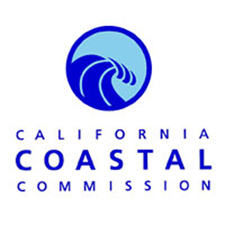By Garry Brown, Executive Director / Orange County Coastkeeper
The California Coastal Commission will meet at Newport Beach City Hall November 13 – 15. On the agenda for Nov. 13 is a Coastal Development Permit application from Connecticut-based Poseidon Water.
Their proposed Huntington Beach seawater desalination facility has been a 15-year political campaign, not a public works project. Proponents say it will be a reliable water supply option, but we do not need the water and Poseidon has been unable to secure any city or water district to commit to purchasing their water.
 What we need is to use water wiser. Conservation measures such as reducing the amount of potable water wasted on turf grass is a great start. Stormwater capture is another viable supply option we can explore that has positive environmental effects.
What we need is to use water wiser. Conservation measures such as reducing the amount of potable water wasted on turf grass is a great start. Stormwater capture is another viable supply option we can explore that has positive environmental effects.
Here are some of the reasons why opponents of this project, including Coastkeeper, Surfrider, Residents for Responsible Desalination, Sierra Club, National Resources Defense Council, and others, have opposed this project from the start:
Marine life impacts: Poseidon plans to utilize the AES power plant’s open ocean intake pipes. By 2020, AES will have phased out this outdated technology as required by state regulations. The open ocean intakes will impinge and entrain more than 80 million fish larvae, eggs and invertebrates each year, which is why this method is now banned for all coastal power plants. The commission staff recommends that Poseidon use subsurface intakes to protect marine species.
Energy use: desalinating water takes 40 percent more energy than what is used to import water. This is saying a lot considering that moving water is one of the most energy intensive processes in the whole state. The desalination plant would use enough energy in one year to power 30,000 homes. When the state is trying to meet certain climate goals, this project would be a step in the wrong direction. Poseidon says this offsets the energy usage of importing water, but the Metropolitan Water District of Southern California has no intent to import less water whether or not the Poseidon plant is built.
Cost: This plant is not necessary for north and central Orange County, where we have a well-managed groundwater basin and the Groundwater Replenishment System that provides locally sourced potable water for much less than the cost of desalinated water. Local groundwater, which is plentiful, costs approx. $488 per acre-foot. An acre-foot is what four suburban families use annually. Imported water costs approx. $835 per acre-foot, and Poseidon’s water would cost anywhere from $1,700 – $2,100 per acre-foot. This increased cost could be forced onto ratepayer’s county-wide if the Orange County Water District purchases Poseidon’s full capacity.
Coastal water quality: This will be degraded by hyper-saline brine discharged into the ocean from the process of removing salt from seawater. The project’s current plan is to intake twice as much seawater than drinking water produced in order to dilute the brine before discharging it back to the ocean. The salt concentration would be twice the original amount and would have adverse effects on the marine environment. The staff recommends diffusing the discharge to lessen these impacts.
Construction, traffic and coastal access: Construction of this plant and delivery pipelines will have a direct impact to Huntington Beach and Costa Mesa residents. The project will unnecessarily cause years of traffic delays, which also poses a threat to coastal access for visitors.
The commission staff report recommends approving the project, but with some major conditions that would reduce environmental impacts. Regardless of these protections, the plant is still not needed.
Join your neighbors on Nov. 13 at 7:30 a.m. to tell the Coastal Commission we do not want or need this project.
More info is available at coastkeeper.org/desal-hb.




